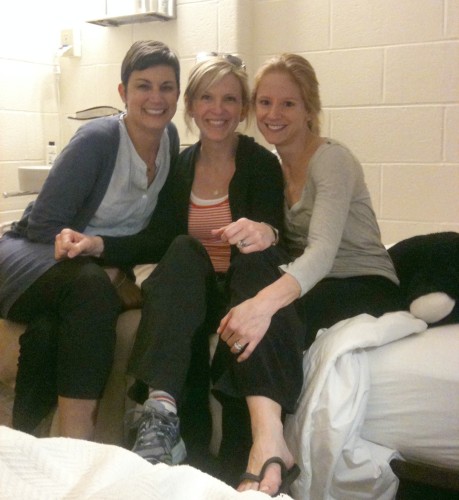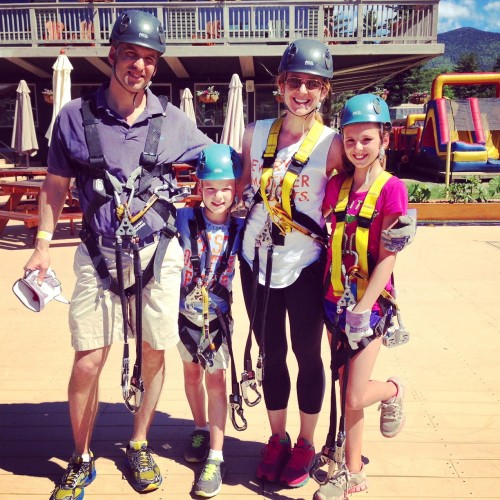
Lexington Battle Green, 5:15am on Patriot’s Day
I should have expected the slap-down from the universe. I really should have.
In March 2009 I wrote about fragility. “At any moment Grace and Whit could meet with danger, either through an accident or through development of illness. When thinking about this post last night, I thought initially: I have chosen not to live in fear of these risks.” As usual, I write my posts a few days in advance. The day it went live, Whit ended up in the ER with his second allergic reaction to tree nuts. It was scary.
In May 2012, I wrote about the 10 things I wanted Grace to know when she turned 10. One of them was “Don’t lose your physical fearlessness. Please continue using your body in the world: run, jump, climb, throw.” Days later, she broke her collarbone.
Over the weekend, I wrote about ease, and the ways in which my life right now is the opposite of ease and, perhaps, the embodiment of it. The post went up on Monday morning. Monday itself was an exceedingly bumpy day in our family’s life. I thought almost all day of my friend Launa‘s image of a family of four as a shopping cart. When one wheel’s wonky, you just can’t drive smoothly or straight. Monday we had four wheels out of joint. Which meant, of course, we went nowhere fast and with great aggravation.
It was, on the surface, a great day. We got up at 4:40 to go to the reenactment of the first skirmish of the Revolutionary War in Lexington. I’ve never seen it before, and it was both fascinating and unexpectedly powerful. But that early wakeup put everybody on edge for the rest of the day.
We watched the marathon some, I worked a lot of the day, the kids both finished homework they had not gotten to over the weekend. Nothing specifically went wrong. But everyone was crabby – myself included, most certainly – and there was a lot of short-tempered snapping. Dinner was filled with tense silence and crossed arms.
I didn’t feel ease. I felt frustration and a generalized feeling of anger and exhaustion. How could one early morning derail us all like this? Why are we all living so close to the edge right now (all the time)? Why does everything feel so hard?
As it often has, reading saved us. After some dish-clanging and raised-voice dinner cleanup, we all retired upstairs. Grace and Whit showered. I did some email. Before long, I was in my favorite place, sitting in bed with a child on each side of me. We were all breathing, we were all reading, we were all together. The dissent and aggravation and tears of the day dissolved in the face of those irrefutable truths.
This is what I’m learning, finally:
This is what ease is.
This is what grace is. They’re not the same thing, but they are, at least in my head, related. They are also some of the many, many manifestations of the way life is not necessarily what we expect it to be.
Ease is not never being aggravated. It’s coming back to center more quickly. I think of the round-bottomed glasses my parents have on their boat, which wobble but don’t actually tip over. It’s breathing through the discomfort. It’s trusting that the light will return, even when it’s dark. It doesn’t look anything like I thought it would, ease, but it’s still here, in every step, in every breath, in every moment.



